
Martin Luther King Jr. was an American Christian minister, activist, and political philosopher who was one of the most prominent leaders in the civil rights movement from 1955 until his assassination in 1968. A Black church leader and a son of early civil rights activist and minister Martin Luther King Sr., King advanced civil rights for people of color in the United States through the use of nonviolent resistance and nonviolent civil disobedience against Jim Crow laws and other forms of legalized discrimination.

The civil rights movement was a social movement and campaign from 1954 to 1968 in the United States to abolish legalized racial segregation, discrimination, and disenfranchisement in the country. The movement had its origins in the Reconstruction era during the late 19th century and had its modern roots in the 1940s, although the movement made its largest legislative gains in the 1960s after years of direct actions and grassroots protests. The social movement's major nonviolent resistance and civil disobedience campaigns eventually secured new protections in federal law for the civil rights of all Americans.

The Student Nonviolent Coordinating Committee was the principal channel of student commitment in the United States to the civil rights movement during the 1960s. Emerging in 1960 from the student-led sit-ins at segregated lunch counters in Greensboro, North Carolina, and Nashville, Tennessee, the Committee sought to coordinate and assist direct-action challenges to the civic segregation and political exclusion of African Americans. From 1962, with the support of the Voter Education Project, SNCC committed to the registration and mobilization of black voters in the Deep South. Affiliates such as the Mississippi Freedom Democratic Party and the Lowndes County Freedom Organization in Alabama also worked to increase the pressure on federal and state government to enforce constitutional protections.
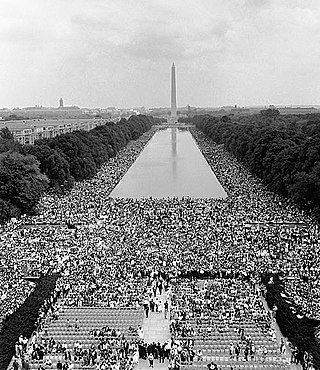
The March on Washington for Jobs and Freedom, also known as simply the March on Washington or the Great March on Washington, was held in Washington, D.C., on August 28, 1963. The purpose of the march was to advocate for the civil and economic rights of African Americans. At the march, final speaker Dr. Martin Luther King Jr., standing in front of the Lincoln Memorial, delivered his historic "I Have a Dream" speech in which he called for an end to racism and racial segregation.

The Southern Christian Leadership Conference (SCLC) is an African-American civil rights organization based in Atlanta, Georgia. SCLC is closely associated with its first president, Martin Luther King Jr., who had a large role in the American civil rights movement.
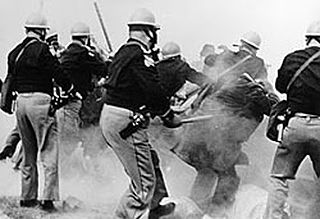
The Selma to Montgomery marches were three protest marches, held in 1965, along the 54-mile (87 km) highway from Selma, Alabama, to the state capital of Montgomery. The marches were organized by nonviolent activists to demonstrate the desire of African-American citizens to exercise their constitutional right to vote, in defiance of segregationist repression; they were part of a broader voting rights movement underway in Selma and throughout the American South. By highlighting racial injustice, they contributed to passage that year of the Voting Rights Act, a landmark federal achievement of the civil rights movement.

The Poor People's Campaign, or Poor People's March on Washington, was a 1968 effort to gain economic justice for poor people in the United States. It was organized by Martin Luther King Jr. and the Southern Christian Leadership Conference (SCLC), and carried out under the leadership of Ralph Abernathy in the wake of King's assassination in April 1968.
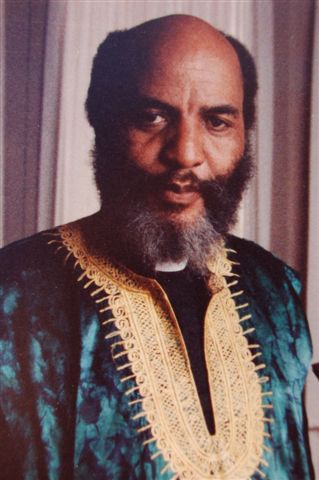
James Luther Bevel was an American minister and leader of the 1960s Civil Rights Movement in the United States. As a member of the Southern Christian Leadership Conference (SCLC), and then as its Director of Direct Action and Nonviolent Education, Bevel initiated, strategized, and developed SCLC's three major successes of the era: the 1963 Birmingham Children's Crusade, the 1965 Selma voting rights movement, and the 1966 Chicago open housing movement. He suggested that SCLC call for and join a March on Washington in 1963. Bevel strategized the 1965 Selma to Montgomery marches, which contributed to Congressional passage of the 1965 Voting Rights Act.

Alfred Daniel Williams King was an American Baptist minister and civil rights activist. He was the younger brother of Martin Luther King Jr. and the younger son of Martin Luther King Sr.
James Edward Orange, also known as "Shackdaddy", was a leading civil rights activist in the Civil Rights Movement in America. He was assistant to Martin Luther King Jr. in the civil rights movement. Orange joined the civil rights marches led by King and Ralph Abernathy in Atlanta in 1963. Later he became a project coordinator for Southern Christian Leadership Conference, drawing young people into the movement.

The 1988 Jesse Jackson presidential campaign was Jesse Jackson's second campaign for President of the United States. This time, his successes in the past made him a more credible candidate and he was both better financed and better organized. Although most people did not seem to believe he had a serious chance at winning, Jackson once again exceeded expectations as he more than doubled his previous results, prompting R. W. Apple, Jr. of The New York Times to call 1988 "the Year of Jackson".

Jerome "Jerry" White is an American politician and journalist, and is the Labor Editor reporting for the World Socialist Web Site. He is a member of the Socialist Equality Party of the United States, and was a member of its predecessor the Workers League, joining the movement in 1979. White was the SEP's nominee for the United States presidential elections four times, running in 1996, 2008, 2012 and 2016.
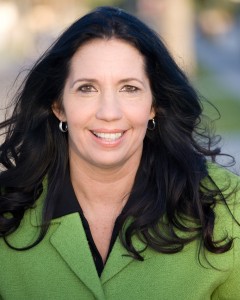
Cheri Lynn Honkala is an American anti-poverty advocate, co-founder of the Kensington Welfare Rights Union (KWRU) and co-founder and National Coordinator of the Poor People's Economic Human Rights Campaign, also called the Poor People’s Army. She has been a noted advocate for human rights in the United States and internationally. She is the mother of actor Mark Webber.

Moral Mondays are protests that originated in North Carolina, United States and emerged elsewhere in the United States. Led by religious progressives, the leaders of the protesters sought to restore "morality" in the public sphere. Protests began in response to several actions by the government of North Carolina which was elected into office in 2013 and are characterized by civil disobedience—specifically entering the state legislature building to be peacefully arrested. The movement protests many wide-ranging issues under the blanket claim of unfair treatment, discrimination, and adverse effects of government legislation on the citizens of North Carolina. The protests in North Carolina launched a grassroots social justice movement that, in 2014, spread to Georgia and South Carolina, and then to other U.S. states such as Illinois and New Mexico.
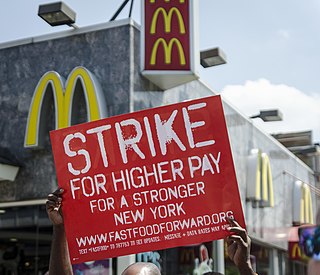
The Fight for $15 is an American political movement advocating for the minimum wage to be raised to USD$15 per hour. The federal minimum wage was last set at $7.25 per hour in 2009. The movement has involved strikes by child care, home healthcare, airport, gas station, convenience store, and fast food workers for increased wages and the right to form a labor union. The "Fight for $15" movement started in 2012, in response to workers' inability to cover their costs on such a low salary, as well as the stressful work conditions of many of the service jobs which pay the minimum wage.
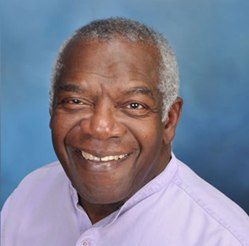
Charles "Chuck" McDew was an American lifelong activist for racial equality and a former activist of the Civil Rights Movement. After attending South Carolina State University, he became the chairman of the Student Nonviolent Coordinating Committee (SNCC) from 1960 to 1963. His involvement in the movement earned McDew the title, "black by birth, a Jew by choice and a revolutionary by necessity" stated by fellow SNCC activist Bob Moses.

William J. Barber II is an American Protestant minister, social activist, professor in the Practice of Public Theology and Public Policy and founding director of the Center for Public Theology & Public Policy at Yale Divinity School. He is the president and senior lecturer at Repairers of the Breach and co-chair of the Poor People's Campaign: A National Call for a Moral Revival. He also serves as a member of the national board of the National Association for the Advancement of Colored People (NAACP) and is the chair of its legislative political action committee. From 2006 to 2017, Barber served as president of the NAACP's North Carolina state chapter, the largest in the Southern United States and the second-largest in the United States. He pastored Greenleaf Christian Church in Goldsboro, North Carolina, from 1993 to 2023.
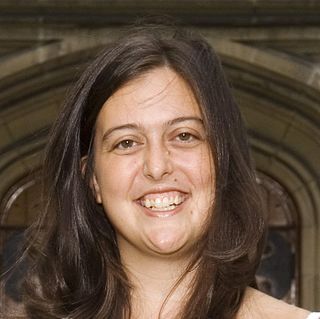
Elizabeth Armen 'Liz' Theoharis is an American theologian who is the co-chair of the Poor People's Campaign: A National Call for a Moral Revival, and the Director of the Kairos Center for Religions, Rights, and Social Justice at Union Theological Seminary. She is an ordained minister in the Presbyterian Church (USA).
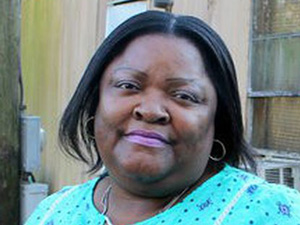
Pamela Sue Rush was an American poverty, civil rights, and environmental justice activist who lived in rural Tyler, Alabama, and who fought against poverty and inequality.

Raymond Arthur Parks was an American activist in the civil rights movement and barber, best known as the husband of Rosa Parks. His wife called him "the first real activist I ever met.”




















